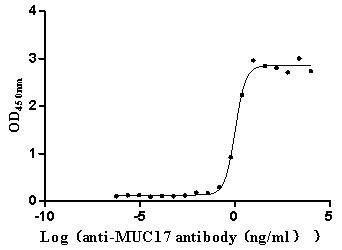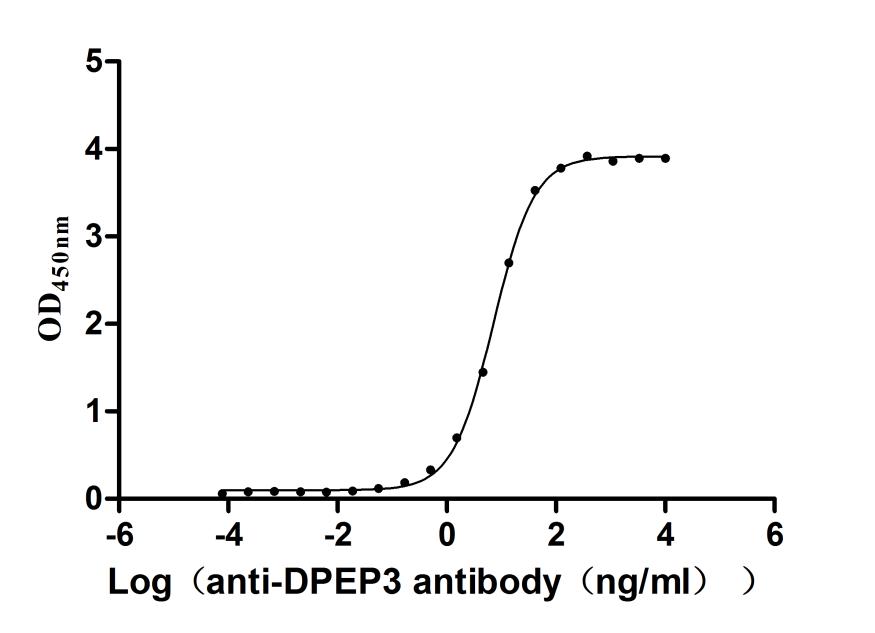Recombinant Human Coagulation factor X (F10)
-
货号:CSB-YP007915HU
-
规格:
-
来源:Yeast
-
其他:
-
货号:CSB-EP007915HU-B
-
规格:
-
来源:E.coli
-
共轭:Avi-tag Biotinylated
E. coli biotin ligase (BirA) is highly specific in covalently attaching biotin to the 15 amino acid AviTag peptide. This recombinant protein was biotinylated in vivo by AviTag-BirA technology, which method is BriA catalyzes amide linkage between the biotin and the specific lysine of the AviTag.
-
其他:
-
货号:CSB-BP007915HU
-
规格:
-
来源:Baculovirus
-
其他:
-
货号:CSB-MP007915HU
-
规格:
-
来源:Mammalian cell
-
其他:
产品详情
-
纯度:>85% (SDS-PAGE)
-
基因名:
-
Uniprot No.:
-
别名:Activated factor Xa heavy chain; Coagulation factor X ; F10; FA10_HUMAN; FX ; FXA; Prothrombinase ; Stuart factor; Stuart Prower factor; Stuart-Prower factor
-
种属:Homo sapiens (Human)
-
蛋白长度:Full length protein
-
表达区域:41-488
-
氨基酸序列ANSFLEEMKK GHLERECMEE TCSYEEAREV FEDSDKTNEF WNKYKDGDQC ETSPCQNQGK CKDGLGEYTC TCLEGFEGKN CELFTRKLCS LDNGDCDQFC HEEQNSVVCS CARGYTLADN GKACIPTGPY PCGKQTLERR KRSVAQATSS SGEAPDSITW KPYDAADLDP TENPFDLLDF NQTQPERGDN NLTRIVGGQE CKDGECPWQA LLINEENEGF CGGTILSEFY ILTAAHCLYQ AKRFKVRVGD RNTEQEEGGE AVHEVEVVIK HNRFTKETYD FDIAVLRLKT PITFRMNVAP ACLPERDWAE STLMTQKTGI VSGFGRTHEK GRQSTRLKML EVPYVDRNSC KLSSSFIITQ NMFCAGYDTK QEDACQGDSG GPHVTRFKDT YFVTGIVSWG EGCARKGKYG IYTKVTAFLK WIDRSMKTRG LPKAKSHAPE VITSSPLK
-
蛋白标签:Tag type will be determined during the manufacturing process.
The tag type will be determined during production process. If you have specified tag type, please tell us and we will develop the specified tag preferentially. -
产品提供形式:Lyophilized powder
Note: We will preferentially ship the format that we have in stock, however, if you have any special requirement for the format, please remark your requirement when placing the order, we will prepare according to your demand. -
复溶:We recommend that this vial be briefly centrifuged prior to opening to bring the contents to the bottom. Please reconstitute protein in deionized sterile water to a concentration of 0.1-1.0 mg/mL.We recommend to add 5-50% of glycerol (final concentration) and aliquot for long-term storage at -20℃/-80℃. Our default final concentration of glycerol is 50%. Customers could use it as reference.
-
储存条件:Store at -20°C/-80°C upon receipt, aliquoting is necessary for mutiple use. Avoid repeated freeze-thaw cycles.
-
保质期:The shelf life is related to many factors, storage state, buffer ingredients, storage temperature and the stability of the protein itself.
Generally, the shelf life of liquid form is 6 months at -20°C/-80°C. The shelf life of lyophilized form is 12 months at -20°C/-80°C. -
货期:Delivery time may differ from different purchasing way or location, please kindly consult your local distributors for specific delivery time.Note: All of our proteins are default shipped with normal blue ice packs, if you request to ship with dry ice, please communicate with us in advance and extra fees will be charged.
-
注意事项:Repeated freezing and thawing is not recommended. Store working aliquots at 4°C for up to one week.
-
Datasheet :Please contact us to get it.
相关产品
靶点详情
-
功能:Factor Xa is a vitamin K-dependent glycoprotein that converts prothrombin to thrombin in the presence of factor Va, calcium and phospholipid during blood clotting.
-
基因功能参考文献:
- An antidote could promptly neutralize the anticoagulant effects of both FXa inhibitors. Our results suggest that drugs and aptamers with shared targets can be combined to exert more specific and potent effects than either agent alone PMID: 29863725
- model predicts that small vesicles promote activation of FX by the extrinsic tenase significantly better than large vesicles PMID: 28935233
- miR-24 was overexpressed in major trauma-induced coagulopathy (TIC) patients. The negative correlation of miR-24 with FX suggested the possibility that miR-24 might inhibit the synthesis of FX during TIC. PMID: 28694557
- zymogen-like factor Xa variants are conformationally dynamic and ligands such as its cofactor, factor Va, stabilize the molecule rescuing procoagulant activity. At the site of vascular injury, the variants in the presence of factor Va serve as effective prohemostatic agents. PMID: 28692575
- Data suggest oxidized lipid vesicles with phosphatidylserine/polyunsaturated fatty acids promote inactivation of ZPI-PZ complex or free ZPI; binding of PZ-complexed or free ZPI to oxidized vesicles mediates inactivation of ZPI (an inhibitor of FXa); blocking heparin- (anticoagulant-)binding site on ZPI interferes with binding to lipid or PZ. (ZPI = protein Z-dependent protease inhibitor; PZ = protein Z; FXa = factor Xa) PMID: 28717005
- PTX2 was identified PTX2 as a novel partner for FX, and both proteins cooperated to prevent their SR-AI-mediated uptake by macrophages. PMID: 28213380
- annexin A2 contributes to lung injury and fibrotic disease by mediating the fibrogenic actions of FXa. PMID: 28283478
- A family with factor X deficiency from Argentina displayed a compound heterozygous proband having the combination of a new mutation with an already known one, and homozygous children. PMID: 27031279
- analysis of how physiological concentrations of Tissue factor pathway inhibitor inhibit FXa PMID: 26607136
- According to our study, compounds 1a, 1g and 1s displayed evident FXa inhibitory activity and excellent selectivity over thrombin in in vitro inhibition activities studies. PMID: 27089317
- This study was conducted to assess the spectrum of factor X gene mutation in Iranian patients with congenital factor X deficiency (FXD). Most molecular studies found a diversity in factor X disease causing mutations in Iranian patients. Like other parts of the world, the majority of mutations in Iranian patients were missense mutations, but splice-site mutations were relatively common. [review] PMID: 26891460
- The Ala275Val substitution is a pathogenic mutation that causes the inherited FX deficiency. PMID: 26708756
- homozygous mutation g.27881G>A(p.Val298Met) of the F10 gene has been identified, which probably accounts for the low FX concentrations in this pedigree PMID: 27264807
- FX carboxyl-terminal region downstream of residue K467 is not essential for secretion and provides a modest contribution to pro-coagulant properties. PMID: 26083275
- In our medical center, rivaroxaban concentrations could be assessed by a rapid chromogenic method. PMID: 26058941
- FXa may inhibit lipopolysaccharide-mediated expression of sPLA2-IIA by suppression of cytosolic phospholipase A2 and extracellular signal-regulated kinase 1/2. PMID: 25399323
- Several members of a family had a c.112 G>C mutation in exon 2 of the F10 gene. Although in-silico analysis predicts this is a benign mutation, this family suggests that the amino acid substitution affects the properties of the factor X protein. PMID: 25803519
- Various acylcarnitines inhibited factor Xa-initiated clotting. PMID: 26175037
- Asymmetric processing of mutant factor X Arg386Cys reveals differences between intrinsic and extrinsic pathway activation. PMID: 26012870
- The model of human prothrombinase presented here provides a powerful resource for contextualizing previous data and for designing future experiments PMID: 25153592
- Factor Xa plasma levels were higher in shift work nurses compared to daytime working nurses. PMID: 25743687
- Asp-185 deletion in FX predisposes FX deficient patient to mild bleeding phenotype. The catalytic activity of the recombinant mutant protease is severely impaired. PMID: 25179519
- Factor Xa has a role in inhibiting HMGB1-induced septic responses in human umbilical vein endothelial cells and in mice PMID: 25007770
- procoagulant, tissue factor-bearing microparticles in bronchoalveolar lavage of interstitial lung disease patients PMID: 24777000
- Letter/Case Report: demonstrate the clinical utility of monitoring rivaroxaban levels through measurements of anti-Xa activity. PMID: 25688138
- The results suggest that the mutation FX-M402T may cause a secretion defect and a molecular abnormality in FX. PMID: 25064371
- Prothrombin is proteolytically converted by factor Xa to the active protease thrombin in a reaction that is accelerated >3,000-fold by cofactor Va. PMID: 24821807
- High FXa expression is associated with vascular inflammation in sickle cell disease. PMID: 24449213
- factor Xa induces an inflammatory signalling by activation of protease-activated receptors in human atrial tissue PMID: 24041930
- Protein Z/protein Z-dependent protease inhibitor and Fxa expression in human gastric cancer cells indicate that these proteins may play a role in anticoagulant events at the tumor tissue. PMID: 24158387
- The structure of factor Xa is regulated by factor Va and phosphatidylserine. PMID: 24467409
- deficiency is associated with bleeding due to poor recognition of the mutant substrate by Factor IXa PMID: 23677006
- In carotid artery plaque, expression of SPHK1 was observed at smooth muscle cell-rich sites and was co-localized with intraplaque FX/FXa content. PMID: 23658376
- Seven missense mutations were identified in the F10 of the four probands with FX deficiency, six of which (Ser425Pro, Ala-29Pro, Phe324Leu, Ala235Thr, Cys111Arg and Met362Thr) were novel and associated with type I FX deficiency. PMID: 23664564
- Anti-FXa antithrombin assay is recommended as a first-line test to detect type II heparin-binding site antithrombin deficiency. PMID: 24124146
- A novel function for AT, which accelerates the modulation of FXa into the fibrinolytic form. PMID: 23416531
- Despite their delay in reaching therapeutic anti-FXa levels on unfractionated heparin treatment, infants monitored with the adult-based anti-FXa range have a high thrombus resolution rate, no thrombus progression, but a relatively high bleeding rate. PMID: 22244010
- We report two novel causative mutations of the Factor 10 gene in a Chinese proband with severe Factor X deficiency and mild clinical symptoms. PMID: 22931370
- The Kunitz 1 and Kunitz 3 domains of tissue factor pathway inhibitor are required for efficient inhibition of factor Xa PMID: 22627666
- results suggest that FX binds to the surface of human species C adenovirus and becomes a pathogen-associated molecular pattern that, upon viral entry into the cell, triggers activation of innate immunity PMID: 23019612
- Three unrealted Palestinian patients were found to be homozygous for c302delG, a new frameshift mutation in the F10 gene causing a stop codon at amino acid 73. PMID: 22008904
- srxA and prxA (2-Cys peroxiredoxin) genes are induced in response to oxidative stress. PMID: 21651559
- patients with hypomethylated F10 promoter in tumors had shorter median overall survival PMID: 22160665
- RXA plasma levels can be quantified accurately and precisely by a chromogenic anti-FXa assay on different coagulometers in different laboratories. PMID: 21840043
- localization of PZ/ZPI and FX in colon cancer cells indicates that PZ/ZPI may contribute to anticoagulant events at the tumor site. PMID: 22424030
- Alboserpin emerges as an atypical serpin that targets FXa and displays unique phospholipid specificity. PMID: 21673107
- The regulatory action of FXa on PAR-2 was concentration-dependent and mimicked by a PAR-2-selective activating peptide. PMID: 21871560
- Differential effects of murine and human factor X on adenovirus transduction via cell-surface heparan sulfate. PMID: 21596747
- Determination of rivaroxaban by different factor Xa specific chromogenic substrate assays: reduction of interassay variability. PMID: 21811937
- Six FXIa catalytic domain residues (Glu(98), Tyr(143), Ile(151), Arg(3704), Lys(192), and Tyr(5901)) were subjected to mutational analysis to investigate interactions between FXIa and a synthetic substrate, the substrate factor IX, and inhibitor PN2KPI. PMID: 21778227
显示更多
收起更多
-
相关疾病:Factor X deficiency (FA10D)
-
亚细胞定位:Secreted.
-
蛋白家族:Peptidase S1 family
-
组织特异性:Plasma; synthesized in the liver.
-
数据库链接:
HGNC: 3528
OMIM: 227600
KEGG: hsa:2159
STRING: 9606.ENSP00000364709
UniGene: Hs.361463
Most popular with customers
-
Recombinant Human Tumor necrosis factor receptor superfamily member 1B (TNFRSF1B), partial (Active)
Express system: Mammalian cell
Species: Homo sapiens (Human)
-
Recombinant Human Heat-stable enterotoxin receptor (GUCY2C), partial (Active)
Express system: Mammalian cell
Species: Homo sapiens (Human)
-
Recombinant Human Signal transducer CD24 (CD24)-Nanoparticle (Active)
Express system: Mammalian cell
Species: Homo sapiens (Human)
-
Recombinant Human B-lymphocyte antigen CD20 (MS4A1)-VLPs (Active)
Express system: Mammalian cell
Species: Homo sapiens (Human)
-
Recombinant Mouse Microtubule-associated protein tau (Mapt) (Active)
Express system: Mammalian cell
Species: Mus musculus (Mouse)
-
Recombinant Human Claudin-6 (CLDN6)-VLPs (Active)
Express system: Mammalian cell
Species: Homo sapiens (Human)
-
Recombinant Human Mucin-17 (MUC17), partial (Active)
Express system: Mammalian cell
Species: Homo sapiens (Human)
-
Recombinant Human Dipeptidase 3(DPEP3), partial (Active)
Express system: Mammalian cell
Species: Homo sapiens (Human)


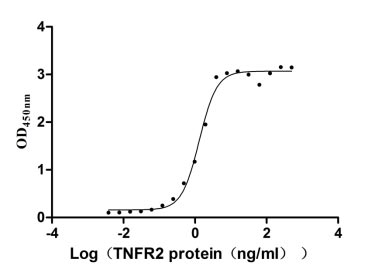
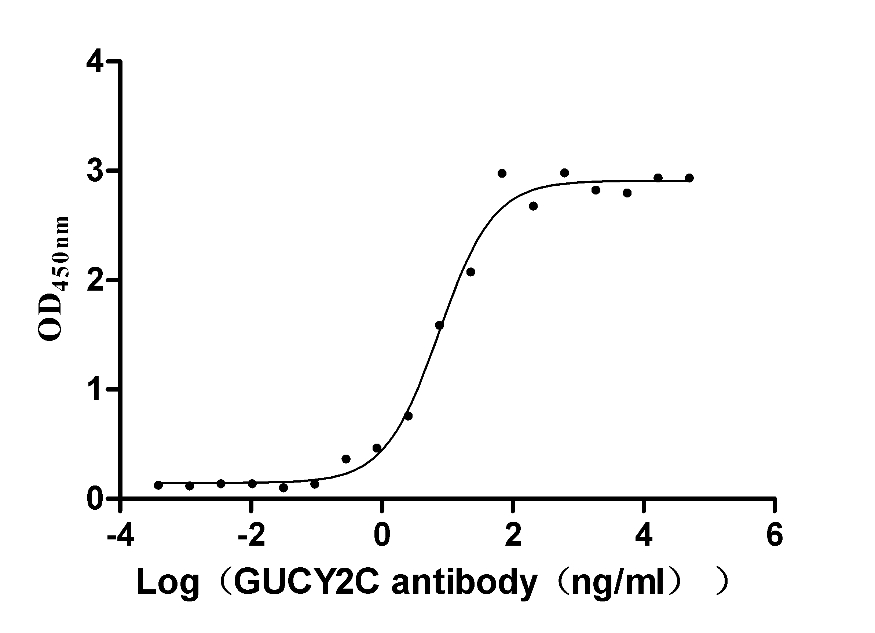
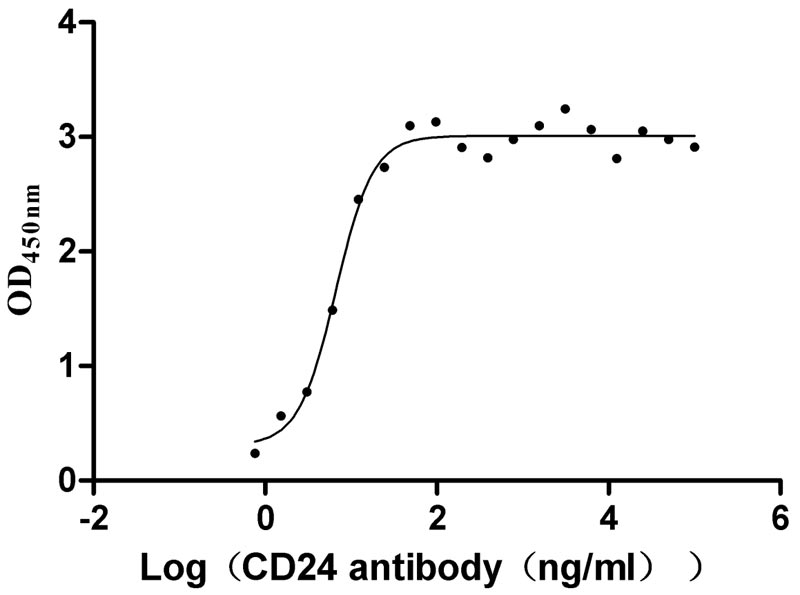
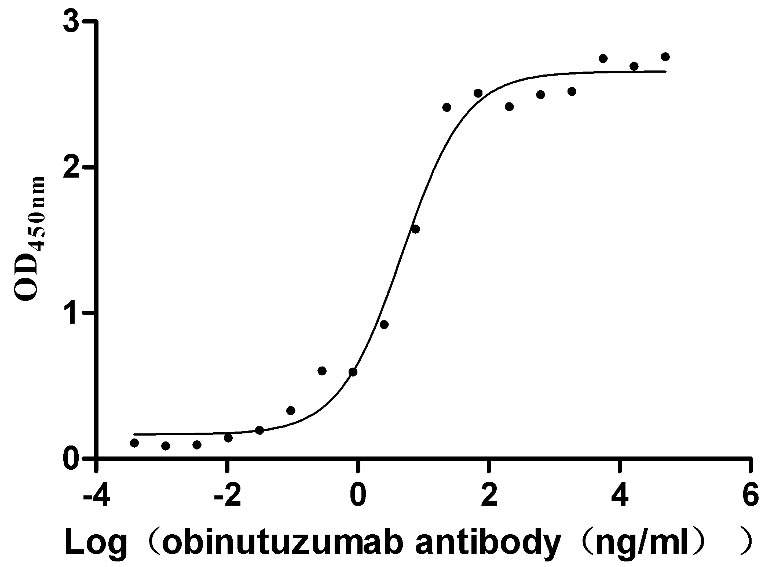
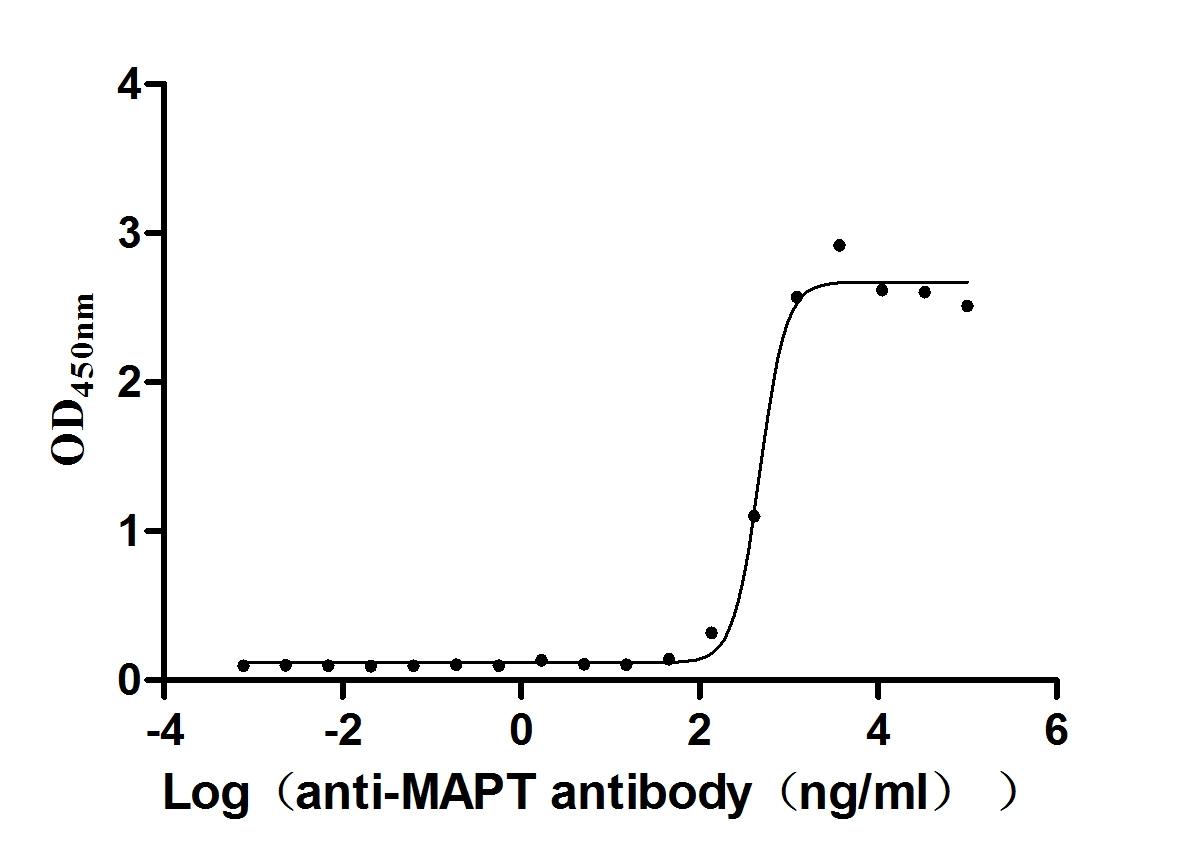
-AC1.jpg)
